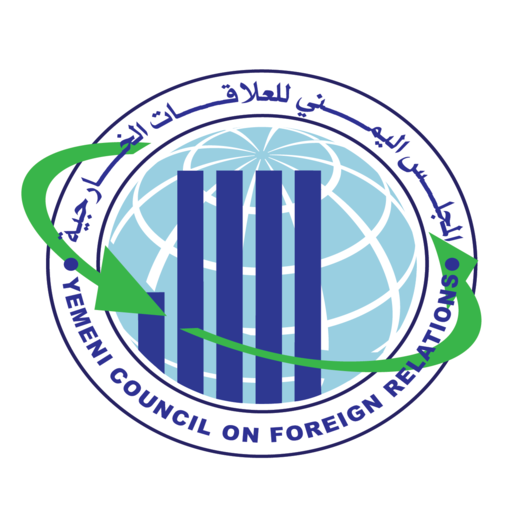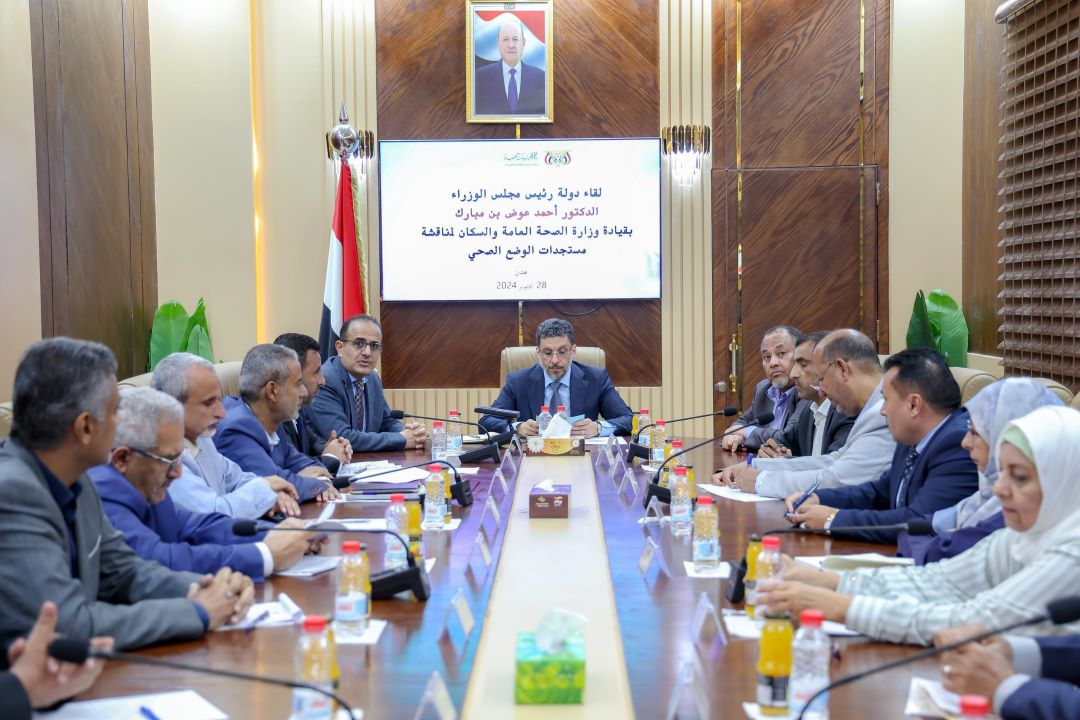Source: Prime Minister’s Office
On Monday, Prime Minister Dr. Ahmed Awad bin Mubarak visited the Ministry of Public Health and Population as part of his field visits to government ministries and institutions to assess the progress of work, the implementation level of reforms, and the development of capabilities to provide services to citizens.
During his visit, Prime Minister bin Mubarak was briefed by Dr. Qasim Buhaibeh, Minister of Public Health and Population, on the efforts being made to improve medical and therapeutic services for citizens, combat the spread of epidemics and fevers, and the ongoing steps towards automating the health system, as well as plans to establish model medical centers in the liberated governorates.
Prime Minister Dr. Ahmed Awad bin Mubarak chaired a meeting with the leadership of the Ministry of Public Health and Population to discuss the ministry’s situation, the health sectors, the challenges they face, and the cooperation with donor organizations and countries to bolster the health system. The meeting also covered the implementation status of financial and administrative reforms within the ministry’s priorities and government directives, including transparency, accountability, and anti-corruption efforts.
In his opening remarks, the Prime Minister expressed his pride in what he had observed at the ministry and its sectors, conveying greetings from His Excellency the President of the Presidential Leadership Council and its members, and appreciation for the great efforts made despite limited resources to provide medical and therapeutic services to citizens.
Dr. Ahmed Awad bin Mubarak presented a comprehensive overview of the general situation at various levels and the accumulated challenges, especially the economic aspects and the decline of the national currency, along with the ongoing efforts by the state and government to address these issues. He reiterated the commitment to continue on the path of reforms according to the government’s five priorities, considering this a necessary choice requiring the commitment of all ministries and institutions to their responsibilities.
He directed the Ministry of Health to develop a plan for the effective and transparent management of financial resources, ensuring support is directed to its key areas like primary care services and combating epidemic diseases. He provided several evaluative observations based on his field visits to hospitals and health centers in Aden, Hadramout, Lahj, and Ma’rib, highlighting the importance of correcting discrepancies to enhance the efficiency of health and therapeutic services for citizens.
The Prime Minister affirmed support for the Health Sector Support Fund project, in coordination with partners like the King Salman Humanitarian Aid and Relief Center, and emphasized the need to increase investment in health infrastructure, including building and equipping hospitals and health centers, especially in rural areas. He called for building more effective partnerships with donor countries and organizations to strengthen the health system and leverage international support in training, financing, and providing medicines and supplies.
He stressed the importance of increasing attention to providing mental health services and psychosocial support for populations affected by conflict and difficult humanitarian conditions, and initiating community programs to support mental health, particularly for affected children and youth. He also pointed out the ongoing need to enhance the ministry’s readiness to face health emergencies, epidemics, and the impact of climate change on health, and to establish an effective emergency response system in collaboration with various local and international sectors and institutions.

